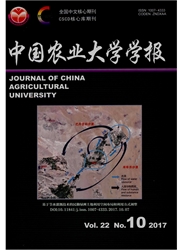

 中文摘要:
中文摘要:
采用东中西部经济发达城市的调查数据,分析公众和科学家对GMF健康风险和生态环境风险的认知现状,并利用有序分类Logistic回归模型分析导致风险认知差异的主要因素。研究结果表明:公众认知的GMF健康风险和生态环境风险均高于科学家所认知的风险;导致公众与科学家风险认知差异的根源之一是公众缺乏GMF相关知识;在知识、信息不全的情况下,公众易于受到外在信息因素和内在心理因素的影响;信息来源于传统媒介、GMF争论了解越多的公众,其认知的GMF风险越大;而专家、政府、企业的可信度以及对食品安全的信心能够有效降低公众的认知风险;科学家因相关知识储备较多,受信息因素和心理因素的影响较小。此外,个体特征因素亦对公众和科学家的GMF风险认知有影响。
 英文摘要:
英文摘要:
Data collected from a survey conducted in several developed cities in the eastern, the central and the western of China were used to analyze the current cognition of GMF health risk and ecological environment risk of the public and scientists. At the same time,we also utilized polychromous logistic regression model to explore the reasons leading to the risk perception differences. The results showed that the public usually had a cautious attitude while the scientists were more optimistic. One of the causes was the public had less knowledge about GMF and lack of knowledge and information,and thus the public was more vulnerable to information and internal psychological factors. Person who with more GMF knowledge and whose information was from traditional media thought that the risk would be greater. The trust to the experts,government,enterprises and food safety can reduce the GMF risk view of the public. Since scientists with much more knowledge about GMF, they were less influenced by information and psychological factors. Also, the individual characteristics affected the risk perception of both the public and scientists.
 同期刊论文项目
同期刊论文项目
 同项目期刊论文
同项目期刊论文
 期刊信息
期刊信息
